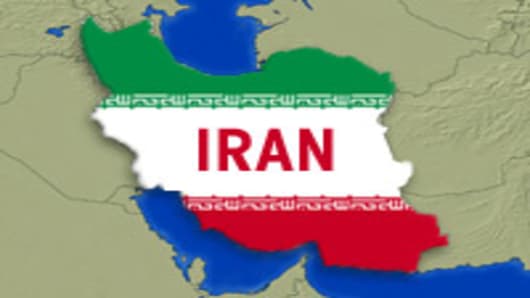With a September deadline from the White House on Iran's nuclear program only weeks away, it remains unclear whether the United States can impose sanctions against the Islamic state in the face of possible opposition from Iran's economic allies.
If proposed negotiations between the U.S. and Iran lead nowhere—and at this point the sides aren't talking—the Obama administration, and Secretary of State Hillary Clinton in particular, have promised Iran would be hit with new and crippling sanctions.
Supporters of tougher sanctions against Iran believe Asia and Europe hold an enormous amount of power over Iran because they invest so heavily in Iran's energy infrastructure. They point out that, despite its proclaimed aim of developing nuclear energy, Iran is in the process of developing nuclear weaponry.
"It is quite clear Iran is developing nuclear weapons, and that we are at a crucial junction," said Gabriela Shalev, Israel's ambassador to the United Nations. "Nobody should doubt it."
A new round of sanctions could target Iran's gasoline imports. Despite being the world's fourth largest oil producer, Iran imports 40 percent of its gasoline and sanctions against Iranian gasoline imports would cripple the country's economy.
Iran's government subsidizes the price of gasoline, capping it right now at about 40 cents a gallon.
A bulk of that refined gasoline comes from France, Switzerland, Holland, Great Britain and Russia's Lukoil.
On the export side, 80 percent of Iran's export revenue comes from oil. Fifty percent of Iran's national budget comes from selling oil to foreign customers in Europe and Asia.
Russia and China have come to rely on Iran for energy imports and exports, and both have been among the most vocal nations opposing an increase of sanctions against the Islamic Republic. Both hold veto power at the United Nations and they have exercised it in the past to protect Iran and their investments by weakening proposals to sanction Iran at the U.N. Russia and China have indicated they would use their veto power again in the future to block increased sanctions.
When asked bluntly if the Europeans, Russia and China would be willing to give up money for Israel's security, Shalev said, "It is not just Israel that is threatened by Iran, but all of the Middle East and a large part of Europe."
Another very high-ranking source at the Israeli mission to the U.N. said that in the end, he believes Russia will come around.
"They don't want a nuclear-armed Iran on their border either. Yes, Russia has expansive economic ties with Iran, but a nuclear armed Iran is definitely not in Russia's interest," he said.
However, China is a different problem for nations trying to increase sanctions on Iran. The Israeli source went on to say, "China has few security concerns with Iran but they need middle eastern energy and Iran is increasingly important to them economically. It is a real problem."


